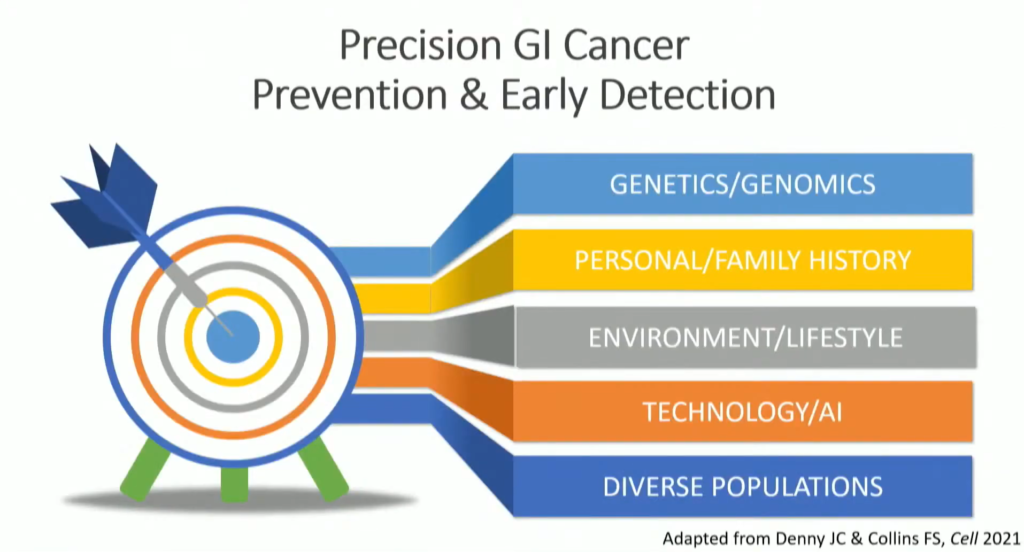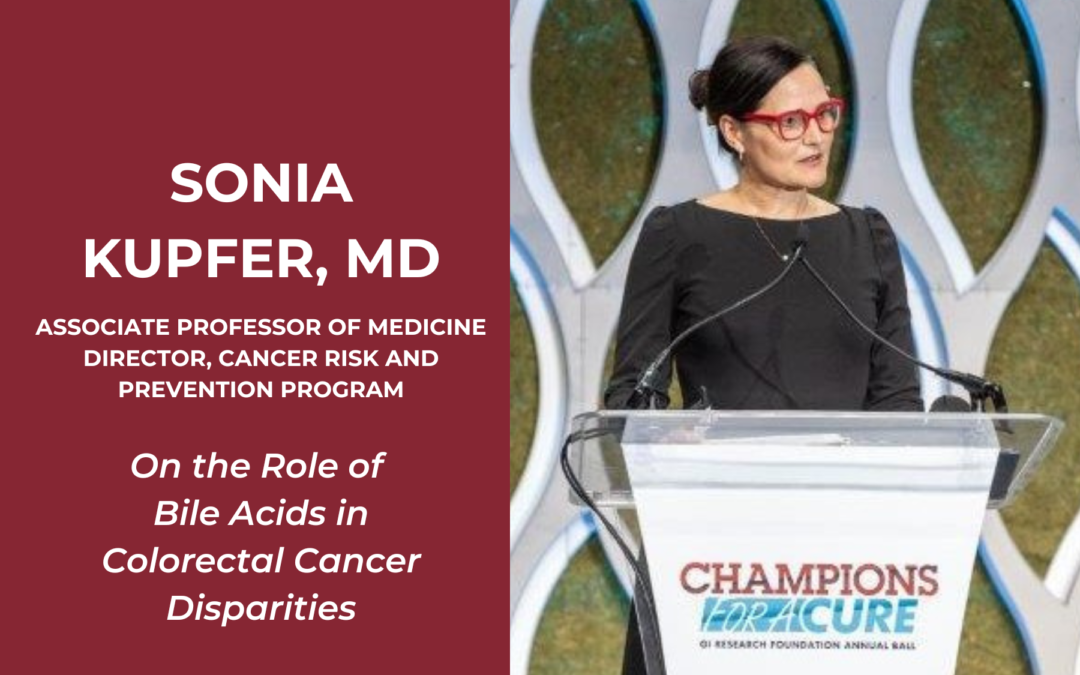“In order to achieve our goal of reducing the burden of GI cancers, we practice and strive for early detection and personalized medicine. Personalized medicine moves away from one-size-fits-all approaches, and integrates knowledge about a person’s genetics, personal and family history, and environmental risk factors, to provide tailored care to the individual.”

So explained Sonia Kupfer, MD, Associate Professor of Medicine and Director, Cancer Risk and Prevention Program. These practices also help to close health equity gaps and racial and ethnic disparities, which are still prevalent in cancer care and prevention.
There is a complex relationship among diet and nutrition, the gut microbiome, and high rates of colon cancer, and specifically, there is a strong association between a high fat, low fiber diet, and colon cancer. In the African American population, rates of colon cancer are disproportionately high, driven by structural inequity and social determinants of health, which impact health care access, stress, nutrition and other factors, and lead to poor health outcomes, including increased cancer rates and mortality.
Dr. Kupfer’s latest translational research, a pilot study supported by the GI Research Foundation, has created a registry African Americans and white individuals, and will examine multiple factors including dietary information, bile acid profiles, the gut microbiome and its metabolites, and the colon’s response to these factors, through the use of organoids, or “mini-guts” from diverse individuals, which will help scientists understand the genomic and cellular responses to these bile acids. Dr. Kupfer’s methods are truly groundbreaking, and no published studies to date have examined these specific factors in different individuals and populations using such methods.
On June 29, 2022 the GI Research Foundation proudly awarded its first annual RFP grants to seven projects, including Dr. Kupfer’s. The newly instituted RFP process, an open call for novel research projects that align with GIRF’s mission, will fund innovative research into better outcomes, innovative treatments and underlying causes of IBD, pediatric Celiac disease, perianal Crohn’s disease, and colorectal cancer, in its first year. More information on these projects, their outcomes, and future RFP grant cycles will be featured on GIRF’s website in the coming months.

